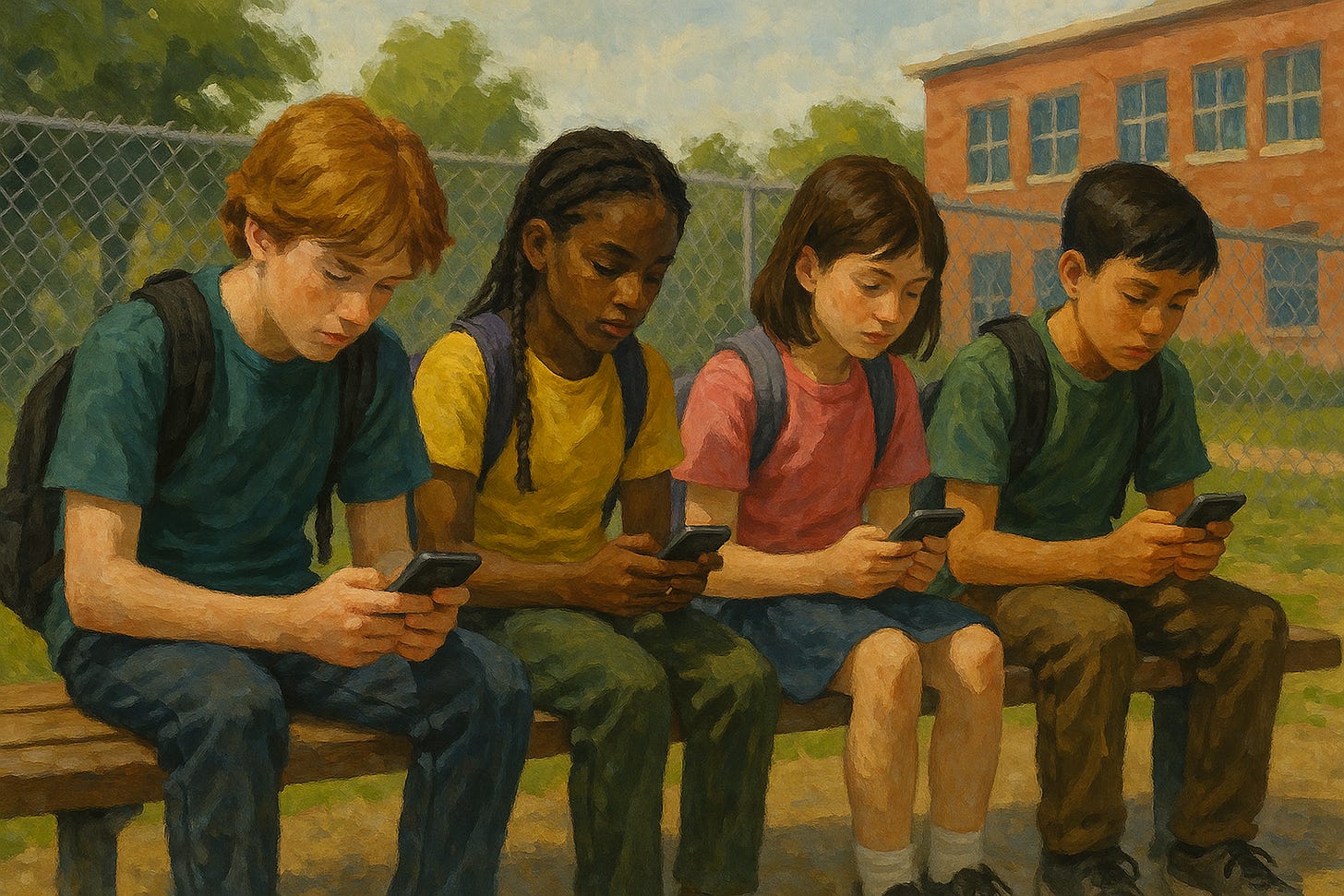A few months ago, Governor Kathy Hochul announced a bold plan: to ban smartphones in New York public schools—from the first bell to the last.
Not just during class. All day.
It’s a proposal that made a lot of sense then—and it makes even more sense now. But as we approach the final days of New York’s budget negotiations, some lawmakers are trying to water it down. They want to allow phone use during “non-instructional” times like lunch and recess.
That’s a mistake. And it’s why I’m speaking up now. I’m writing my representatives in the Assembly and Senate and I hope you will consider doing the same. You can find your representatives and send a message here.
At Loftie, we’re all about helping people reclaim their attention. So this debate hits close to home. It’s not just about policy—it’s about the relationship we have with our devices, and who we become because of it.
Childhood on Airplane Mode
I still remember what school felt like before smartphones. Recess was chaotic and social and filled with weird little arguments and inside jokes. Lunchtime meant sitting down and actually talking to the person next to you. It wasn’t perfect—but it was real.
Now? I’ve seen tables of 13-year-olds, heads down, scrolling silently. They’re technically “together,” but disconnected in every meaningful way. And more than anything, they look anxious—anxious to respond, to be seen, to keep up.
We’ve handed kids one of the most powerful tools ever created—and then acted surprised when it overwhelms them.
The Myth of “Free Time”
Supporters of the watered-down version say phones should be allowed during lunch or recess, since those aren’t “instructional” periods.
But that misses the point.
Unstructured time isn’t throwaway. It’s where kids learn how to be human—how to read a room, navigate awkwardness, build friendships. If that time is spent refreshing a feed instead of forming connections, it’s not just time we’re losing—it’s development.
And let’s not pretend kids can simply “self-regulate.” Their brains aren’t built for that yet. The part responsible for impulse control doesn’t fully develop until age 25. So when a seventh grader wants to pay attention to a friend, but their phone is buzzing with dopamine hits—the phone usually wins.
Not Yet
At Loftie, we believe in the power of not yet.
Not yet checking your phone.
Not yet starting your day with a screen.
Not yet handing a child a device designed for distraction.
We build products that slow the scroll and make space for things that actually matter—sleep, presence, conversation, even boredom. That same mindset is why I support the full-day school ban. It’s not about punishing kids. It’s about protecting them.
It’s about giving them the chance to just be—without a screen shaping every moment.
This Is Bigger Than Policy
Yes, there are logistics to work out. Emergencies, parent communication—we can solve those.
But this moment isn’t about logistics.
It’s about values.
Do we believe kids deserve boundaries from tech—or not?
Because every year, our definition of “normal” creeps further into the absurd. A smartphone at age 10. A TikTok feed before puberty. A curated online identity before you’ve even figured out who you are in real life.
It doesn’t have to be this way.
The Last Bell
Governor Hochul’s proposal isn’t just a school policy. It’s a cultural stand. It says: this time, these hours, this chapter in a child’s life—it matters.
And right now, we’re on the verge of losing the chance to make that stand.
The budget is due April 1. The clock is ticking.
Whether you're a parent, a teacher, a legislator, or a tech founder like me—we all have a role to play.
We can choose to pause. To wait. To say: not yet.
Because attention is sacred.
Because presence is radical.
And because sometimes, the most powerful thing we can do—is nothing at all.
—
Matt
CEO, Loftie







